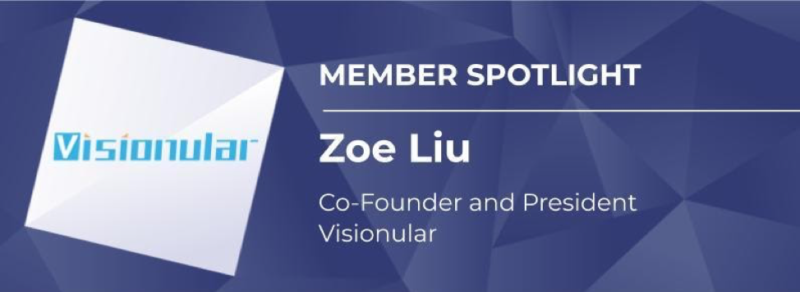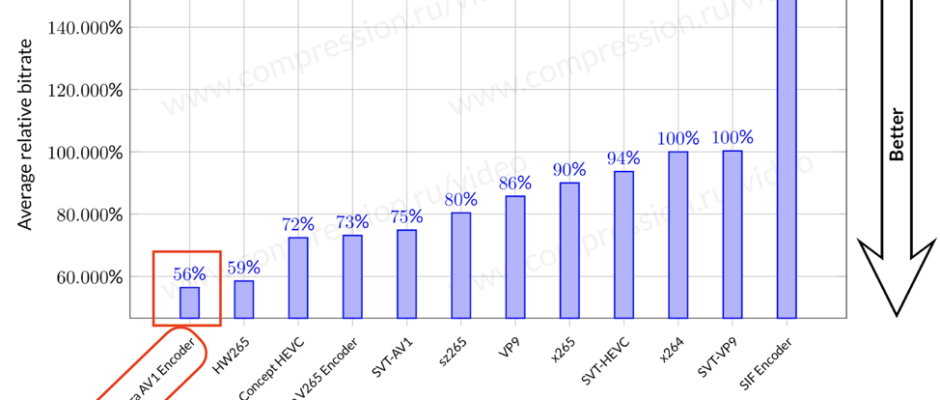AOMedia Member Spotlight with Visionular Co-Founder and President Zoe Liu

Please introduce your company and yourself briefly.
I have been an active contributor in the field of video codecs and real-time video communications for almost 20 years, and prior to founding Visionular in July 2018 I was a software engineer in the Google WebM team that helped to finalize the new royalty-free video codec standard, AV1. Shortly after my co-founder, Zheng Zhu, and I founded Visionular we joined AOMedia.
Visionular is dedicated to delivering world-leading video solutions and services in the field of video encoding, transcoding, processing, analysis, and enhancement – all powered by AI and adaptive solutions.
What first brought you to AOMedia, and why did you decide to become a member?
We became an AOMedia member shortly after the launch of Visionular, having been such a close part of the AOMedia community as part of the Google WebM team. With R&D teams in Mountain View, California, and Hangzhou, China, our teams have contributed heavily to the AV1 open source project, especially to the libaom codebase. My partner, Zheng Zhu, and our team members have contributed hundreds of code submissions to finalize the AV1 standard and to accelerate and optimize the AV1 encoder and decoder work. In addition, we have introduced AV1 to many other collaborators as well as our customers.
What are you currently working on with regards to AV1? How will end-users benefit from your work? Businesses? Markets?
We have been dedicated to Aurora, our optimized commercial AV1 encoder, since the launch of Visionular. We continuously push forward the optimization of Aurora's coding efficiency and encoding complexity, as well as its deployment in the industry. We have a true belief in AV1's big potential, and we feel obligated to demonstrate that through our products and use cases.
We try hard to optimize Aurora and launch it with as many enterprise customers as possible, in an endeavor to eventually let all the video end-users enjoy the benefits of AV1. Thanks to the AOMedia funded dav1d project, an open AV1 software decoder initially jointly developed by VideoLan, Mozilla, and Two Orioles, Visionular can identify feasible user scenarios for AV1 where software decoding solutions can be widely accepted. As we tune our strategy to optimize Aurora, we are focused on maintaining its high coding efficiency well outperforming existing solutions, while accelerating the encoding speed ready for a real product.
Aurora now covers all the use cases for video sharing and distribution, including video-on-demand (VOD), live streaming, and real-time communications (RTC), with the latter one targeted for typical user scenarios such as distance learning and video conferencing. We have already launched Aurora with several business customers and are collaborating with quite a few teams to extend AV1 to a wider market. For instance, Aurora is now capable of streaming 1080p 30fps+ high motion videos in real-time, consistently with a superior bandwidth saving at the same objective or subjective quality, compared with other encoders.
In addition, Aurora's ability to deliver 1080p screen content sharing makes it ideal for RTC education and collaboration applications that involve a real-time screen and whiteboard sharing. With RTC, Aurora typically results in a bandwidth saving of around 50 to 75% enabling the extremely low CPU usage needed for deployment using low-end PCs. In fact, Visionular has teamed with Agora.io in an effort to launch such distance learning products, an industrial sector that is experiencing extremely high demand worldwide. We have also been working closely with Twitch and Mozilla, aiming to provide highly stable, reliable AV1-based live streaming services that offer very low delay.
Indeed, the demand for AV1 from the market has been growing beyond what we may have expected. We are collaborating with a customer looking to deploy their video sharing service in Africa. Devices, such as mobile phones in Africa, tend to be low-end, hence imposing stricter demands on a decoder's performance and associated power consumption. In addition, bandwidth in Africa is low, requiring a video encoder that will deliver quality video at lower resolution and lower bitrates. Visionular was able to demonstrate that AV1-based Aurora could save more than 20% bitrate on typical high motion sports videos, when compared with current bitstreams, and deliver quality video even at 150kbps or lower bandwidth ranges. Given this demonstration, our customers recognized a huge potential in AV1 to help drive their business forward and, as a result, we see great value in our products.
What AOMedia efforts are you most excited about?
Visionular's Aurora received high marks from one of the world's annual video codec evaluations organized by MSU (Moscow State University), first for its HD comparison, with results announced in Nov 2019, and then for its 4K comparison, with results announced in March 2020. Aurora ranks number one in the following categories:
-
Part II: FullHD Content, Subjective Evaluation, as the only AV1 contender in the category.
-
Part III: 4K Content, Objective Evaluation, in the category of "4K Universal 1FPS" under all three objective quality metrics SSIM / PSNR / VMAF, surpassing all other AV1/VP9/265/264 contended encoders, including those from MainConcept, Huawei, ByteDance, etc.
We are genuinely proud of our Visionular team members' hard work and proud of being a member of the AOM community. The MSU rolled out strict rules for the competition, enforcing an encoder to meet the encoding speed bar while demonstrating the standard advantages of AV1.

What industry momentum do you see around AV1?
We sincerely appreciate all the effort contributed by the open-source community to AV1. To date, there are three well known open-source AV1 encoders: SVT-AV1 initiated by the joint effort between Intel and Netflix; rav1e initiated by Mozilla, as well as libaom initiated by AOMedia. On the decoding side, there is the open-source AV1 decoder dav1d. In addition to the encoding and decoding milestones, AV1's impact, adoption, and its industrial deployment potential have been discussed at conferences worldwide. We always enjoy the technical discussions, the growth of the community, and together we develop innovative technologies to change the world.
We always feel excited to share our experiences with AV1 with the community and participate in presenting our AV1 products at major shows including NAB in Las Vegas and IBC in Amsterdam. We have actively discussed and shared our AV1 optimization technologies and algorithms with other engineers and technicians in the field, including LiveVideoStackCon, BigApple, AllThingsRTC, APSARA, AOMedia Research Symposium, and Monthly SF Video Technology Meetup. We have been continuously working with other collaborators to launch our AV1 products to serve real customers.